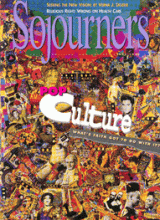"Postmodernism" is a weird term. Despite its slippery meaning, most people agree it includes a challenge to the absolute authority of reason and hierarchy as they arose with the birth of European capitalism and the European Enlightenment. Thus, most postmodernist talk includes a decentering of the exclusive power of white privileged males. Consequently, only today do we see the eruption of marginal communities-blacks, Asian-Pacific Americans, Latinos/Hispanics, American Indians, gays and lesbians, and others.What is disturbing to me is how those who utilize postmodernist discourse are usually not from those communities that are supposed to be emerging to challenge the center. This fact (that those who do the talking are too often part of some aspect of what is being decentered-whiteness, maleness, or privileged status) causes my antenna of suspicion to rise. What specifically is being decentered? Why is the margin now being recognized and named as initiating critiques? Resistance on the part of the margin to the center is not new-specifically, Africans and African Americans have struggled since Europeans forcefully brought them to Jamestown, Virginia, in 1619.
I think postmodernist talk is in the foreground now because the power of the center has concluded that the margin can be more effectively (1) commodified and (2) scapegoated. The commodification of the margin can be seen in the overabundance of black people in the news and popular perception-both in negative (criminal) activities and positive (comedian, news reporter, politician, sport, singing/musical) roles.
People will "buy" a particular newspaper or television channel if they see a lot of black men and women caught by police officers. It's no accident that the major television networks have documentary cop shows whose major "actors" are black criminals. Similarly, on the positive side, black non-criminals have resuscitated entertainment, sports, and political industries.
Read the Full Article

